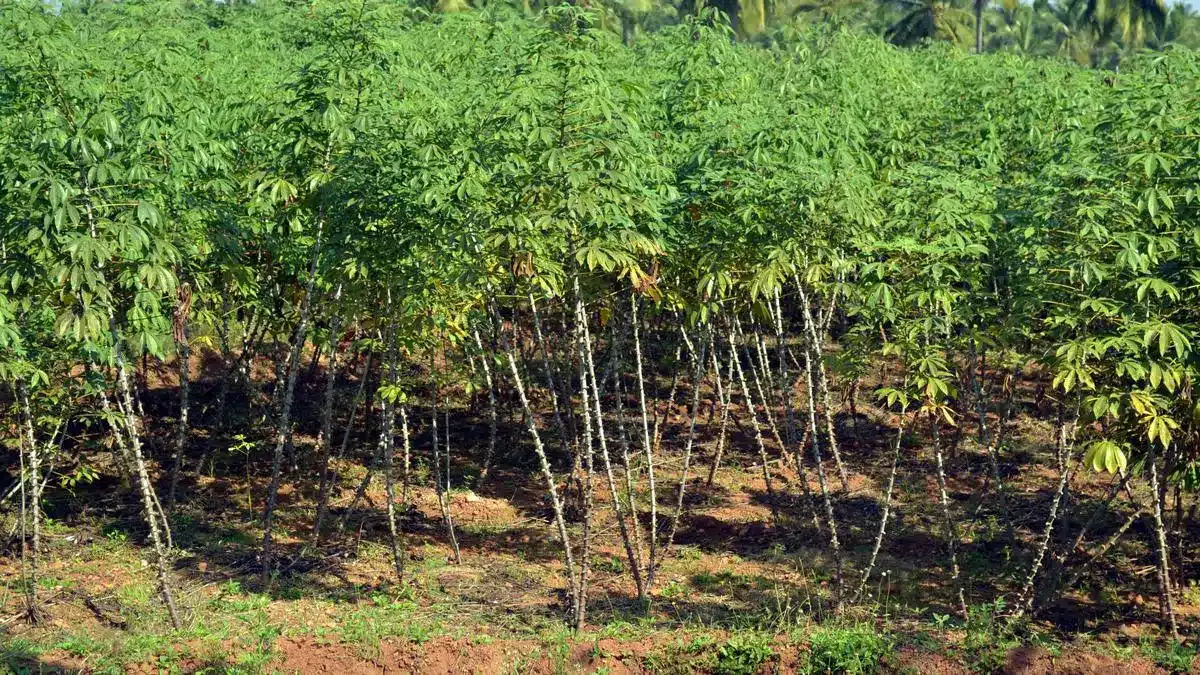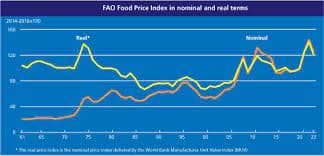About Tapioca plant
- It is a major horticulture crop cultivated on nearly 3 lakh hectares in Tamil Nadu, producing 60 lakh tonnes of the crop.
- It is cultivated throughout the tropical world for its tuberous roots, from which cassava flour, breads, tapioca, a laundry starch, and an alcoholic beverage are derived.
- Climatic conditions required
- Soil: Any well-drained soil, preferably red lateritic loamy soil.
- It thrives best in a tropical, warm, humid climate
- Rainfall: Well-distributed rainfall of over 100 cm per annum.
- This crop can be cultivated upto an elevation of 1000 m.
- All parts of cassava/tapioca – leaves, stem, tuber and rind – contain the compounds called cyanogenic glucosides (CNGs), that is, linamarin and lotaustralin which are hydrolysed by endogenous enzyme linamarase to acetone cyanohydrin which may break down spontaneously liberating free hydrogen cyanide.
- Both acetone cyanohydrin and free cyanide are toxic.
- Its leaves contain about 10 times higher amounts of CNGs than roots.
- The CNG content of cassava leaves decreases with the increase in the age of the leaves.
- The rind contains 10-30 times higher cyanoglucoside content than the edible parts.
- Feeding crushed peels or leaves immediately after crushing or without proper drying poses a high risk of cyanide poisoning in animals.
Q1) What is Cyanide?
It is a rapidly acting, potentially deadly chemical that interferes with the body’s ability to use oxygen. Cyanide can be a colorless gas or liquid, such as hydrogen cyanide (HCN) or cyanogen chloride (CNCl). Cyanide can also be a crystal (solid) form such as sodium cyanide (NaCN) or potassium cyanide (KCN).
Last updated on July, 2025
→ UPSC Notification 2025 was released on 22nd January 2025.
→ UPSC Prelims Result 2025 is out now for the CSE held on 25 May 2025.
→ UPSC Prelims Question Paper 2025 and Unofficial Prelims Answer Key 2025 are available now.
→ UPSC Calendar 2026 is released on 15th May, 2025.
→ The UPSC Vacancy 2025 were released 1129, out of which 979 were for UPSC CSE and remaining 150 are for UPSC IFoS.
→ UPSC Mains 2025 will be conducted on 22nd August 2025.
→ UPSC Prelims 2026 will be conducted on 24th May, 2026 & UPSC Mains 2026 will be conducted on 21st August 2026.
→ The UPSC Selection Process is of 3 stages-Prelims, Mains and Interview.
→ UPSC Result 2024 is released with latest UPSC Marksheet 2024. Check Now!
→ UPSC Toppers List 2024 is released now. Shakti Dubey is UPSC AIR 1 2024 Topper.
→ Also check Best IAS Coaching in Delhi















